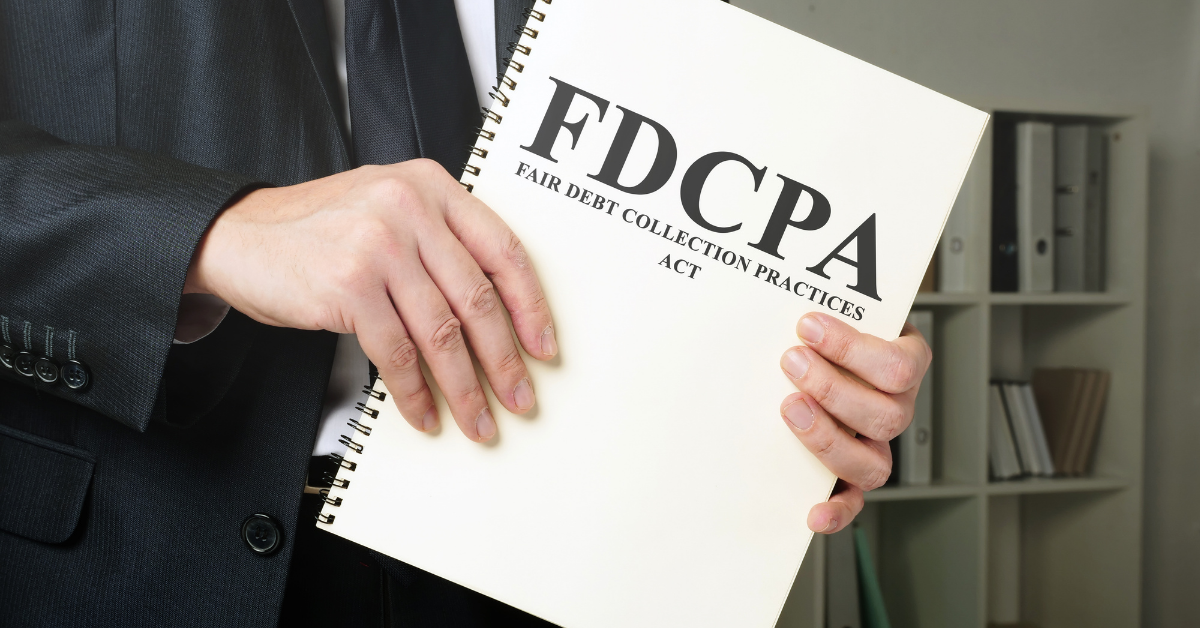Dealing with debt can be overwhelming, but LSS Law is here to help. Our team of experienced bankruptcy attorneys in South Florida specializes in helping individuals like you find relief from mounting debts and aggressive debt collectors. We offer no-cost bankruptcy Strategy Sessions to help you develop a plan to get out of debt successfully. Plus, you can download our free report containing “secrets that creditors don’t want you to know” by filling out the short form on the right side of the page.
What You Need to Know about Debt Collection

Debt collection is a process by which creditors attempt to collect unpaid debts from individuals, usually through third-party debt collectors or collection agencies. The Fair Debt Collection Practices Act (FDCPA) governs debt collection in the United States, providing protections for consumers and setting guidelines for debt collectors to follow. To ensure that you’re treated fairly, you’ll need to understand your rights and responsibilities under the FDCPA and your own state’s debt collection laws.
Types of Debt
There are two main types of debt: secured and unsecured. Secured debts, such as auto loans and mortgages, are backed by collateral. If you default on a secured debt, the creditor can seize the collateral to recoup their losses. Unsecured debts, like credit card debt and medical bills, don’t have collateral attached. Since there is no property to use for leverage, debt collectors are more likely to pursue unsecured debts aggressively.
Debt collection laws vary by state, but all states must adhere to the federal FDCPA guidelines. The FDCPA prohibits debt collectors from using deceptive practices, abusive language, or threatening violence when trying to collect a debt. It also sets rules for when and how debt collectors can contact you, as well as how they must handle disputes and validate debts. Some states have their own debt collection laws that provide even greater protections for consumers.
Under federal law, debt collectors must follow strict guidelines to ensure consumer protection. This includes providing written notice of the debt within five days of initial contact and verifying the debt upon the consumer’s request. It’s important to be aware of your rights under federal and state laws, as this knowledge can help you effectively deal with debt collectors and safeguard yourself from unfair collection practices.
Recognizing a Legitimate Debt Collector
When an agency contacts you to collect debts, it’s essential to determine whether they’re a legitimate debt collector representing a creditor or a scammer trying to take advantage of your financial situation. Legitimate debt collectors must provide you with a written notice containing the amount of the debt, the name of the original creditor, and a statement informing you of your right to dispute the debt within 30 days. If a debt collector from a debt collection agency refuses to provide this information or uses obscene or profane language, it may be a sign of a scam.
Understanding the Statute of Limitations on Debt Collection
Each state has a statute of limitations on debt collection, which sets a time limit for how long a debt collector generally can legally pursue a debt. Once the statute of limitations has expired, the debt becomes “time-barred debt,” meaning the debt collector can no longer sue you to collect the debt. However, they may still attempt to collect the debt through other means. Be sure to know your state’s statute of limitations and whether a debt is time-barred before agreeing to pay the debt.
Your Rights Under the Fair Debt Collection Practices Act

The FDCPA provides several protections for consumers dealing with debt collectors, including:
- Prohibiting debt collectors from using abusive or deceptive practices
- Limiting the hours during which debt collectors can call you
- Requiring debt collectors to provide written verification of the debt upon request
- Allowing consumers to dispute debts and request validation information
- Preventing debt collectors from discussing your debt with others, such as co-workers or neighbors
If a debt collector violates any of these provisions, you have the right to file a complaint with the Federal Trade Commission (FTC) or your state’s attorney general.
Strategies for Dealing with Debt Collectors
If you’re struggling with debt and facing aggressive debt collectors, there are several strategies to consider:
1. Know your rights under the FDCPA: Familiarize yourself with the FDCPA and your state’s debt collection laws to ensure you’re treated fairly by debt collectors.
2. Verify the debt: Request written verification of the debt from the debt collector to ensure it’s legitimate and accurate.
3. Negotiate a payment plan: If you’re unable to pay the full amount of the debt, try negotiating a payment plan with the debt collector that fits your budget.
4. Seek credit counseling: A credit counselor can help you develop a debt management plan and negotiate with creditors on your behalf.
5. Consider bankruptcy: If your debts are overwhelming and other options aren’t feasible, bankruptcy may provide a fresh start and relief from debt collectors.
How LSS Law Can Help

At LSS Law, our team of experienced bankruptcy attorneys is here to help you navigate the complexities of debt collection and bankruptcy. We offer no-cost bankruptcy Strategy Sessions to help you develop a plan to get out of debt successfully. Plus, you can download our free report containing “secrets that creditors don’t want you to know” by filling out the short form on the right side of this page.
Don’t let debt collectors control your life. Contact LSS Law today to take the first step toward a brighter financial future.
The Impact of Debt Collection on Your Credit Report
Debt collection can have a significant impact on your credit report, which in turn affects your ability to secure loans, rent an apartment, or even find employment. When a debt goes into collections, it’s typically reported to the three major credit bureaus, resulting in a negative entry on your credit report that can remain for up to seven years. Additionally, late payments, charge-offs, and other negative marks associated with delinquent debt can further damage your credit score.
To mitigate the impact of debt collection on your credit report, address the issue as soon as possible. This may involve negotiating a payment plan with the debt collector, disputing inaccuracies in the reported debt, or seeking professional credit counseling to develop a comprehensive debt management strategy.
Wage Garnishment and Legal Action
If you’re unable to resolve your debt through negotiation or other means, a debt collector may take legal action against you. This can result in a debt collection lawsuit, which, if successful, allows the debt collector to secure a judgment against you. With a judgment in hand, the debt collector can pursue wage garnishment, bank account levies, or even property liens to collect the debt.
To protect yourself from wage garnishment and other legal actions, consult with an experienced bankruptcy attorney who can help you understand your rights and explore your legal options. At LSS Law, our team of skilled attorneys can guide you through the process and potentially negotiate with the debt collector on your behalf to reach a settlement or payment arrangement.
Protecting Yourself from Identity Theft
In some cases, debt collection efforts may be the result of identity theft, where someone has fraudulently obtained credit in your name. If you suspect that you’re a victim of identity theft, it’s crucial to act quickly to protect your credit and financial well-being. Some steps to take include:
– Placing a fraud alert on your credit reports
– Filing an identity theft report with the Federal Trade Commission
– Disputing fraudulent accounts or charges with creditors and credit bureaus
– Regularly monitoring your credit reports for suspicious activity
The Benefits of Credit Counseling
Credit counseling can be an invaluable resource for individuals struggling with debt, especially when facing aggressive debt collectors. A certified credit counselor can help you:
– Assess your financial situation and create a realistic budget
– Develop a debt management plan to consolidate your debts and lower interest charges
– Negotiate with creditors to reduce fees, interest rates, or even the total amount owed
– Provide guidance and support throughout the debt repayment process
LSS Law is proud to work with reputable credit counseling agencies to help our clients find the best solution for their unique financial circumstances.
Why Choose LSS Law for Your Bankruptcy and Debt Collection Needs
At LSS Law, our team of knowledgeable and compassionate bankruptcy attorneys is dedicated to helping you regain control of your financial future. With years of experience in bankruptcy law and a deep understanding of debt collection practices, we have the expertise to guide you through every step of the process. Whether you’re considering bankruptcy, negotiating with debt collectors, or seeking credit counseling, LSS Law provides the support and guidance you need.
Don’t let debt collectors dictate your life. Take control of your finances and secure a brighter future with the help of LSS Law. Reach out to us today to schedule your no-cost bankruptcy Strategy Session and download our free report containing “secrets that creditors don’t want you to know” by filling out the short form on the right side of this page. Together, we can help you overcome debt challenges and achieve lasting financial freedom.
Frequently Asked Questions About Debt Collection
Our clients often have several questions about debt collection, their rights, and the best course of action to take. We’ve compiled some of the most frequently asked questions and provided answers to help you better understand the debt collection process and your options.
How can I stop debt collector calls?
Under the FDCPA, you have the right to request that a debt collector stop contacting you. To do this, send a written request via certified mail to the debt collector requesting that they cease all communication. Keep a copy of the letter for your records. Once they receive your request, the debt collector must stop contacting you, except to inform you of any specific legal action they may take.
Can a debt collector take money from my bank account or garnish my wages?
If a debt collector wins a judgment against you in court, they may be able to garnish your wages or levy your bank account to collect the debt. However, they cannot do so without a court order. Be aware of your state’s law regarding wage garnishment and bank levies, as some states provide additional protections for consumers.
What happens if I don’t pay a debt collector?
If you don’t pay a debt collector, they may continue to try to collect the debt, potentially resulting in a negative impact on your credit report, legal action, or even wage garnishment. It’s essential to address the debt and explore your options, such as negotiating a payment plan or seeking credit counseling, to avoid these consequences.
Can I negotiate with a debt collector?
Yes, you can often negotiate with a debt collector to reach a payment arrangement or even a reduced settlement amount. Be prepared to explain your financial situation and make a realistic offer based on your ability to pay. Keep in mind that any negotiated settlement may have tax implications, as the forgiven debt may be considered taxable income.
How can I tell if a debt is time-barred?
To determine if a debt is time-barred, you’ll need to know the date of your last payment and your state’s statute of limitations for that type of debt. If the statute of limitations has passed, the debt is considered time-barred, and the debt collector cannot legally sue you to collect the debt. However, acknowledging the debt or making a payment can restart the statute of limitations, so proceed with caution when dealing with time-barred debt.
Can a debt collector sue me for an old debt?
While a debt collector can sue you for an old debt, they must do so within your state’s statute of limitations. If the statute of limitations has expired, the debt is considered time-barred, and the debt collector cannot legally sue you to collect the debt. Be aware of your state’s statute of limitations and consult with an attorney if you’re unsure about your legal obligations.
We hope this FAQ section has provided useful information about debt collection and your rights. If you have further questions or need assistance with debt collection issues, don’t hesitate to contact LSS Law for a no-cost bankruptcy Strategy Session and download our free report containing “secrets that creditors don’t want you to know” by filling out the short form on the right side of this page.






